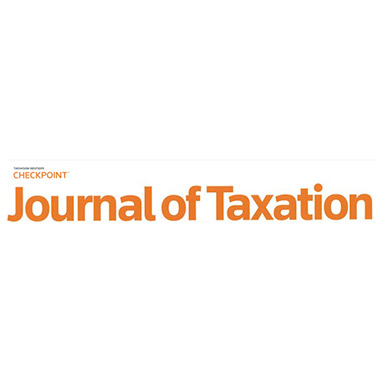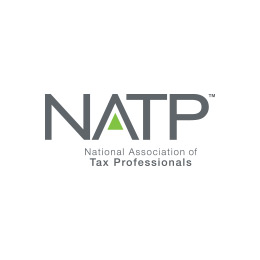While offshore accounts can offer many financial benefits, they come with stringent tax reporting requirements. Non-compliance can lead to significant financial penalties.
While the penalties for not reporting offshore accounts can be stiff, they can usually be reduced. The IRS offers several paths to reduce your penalties in exchange for disclosing your offshore assets. That is where our firm can help. From understanding complex tax laws to representing you in legal proceedings, our knowledge and guidance can make all the difference. Working with our team early in the process can help mitigate the worst penalties you might be facing.
For help reducing your offshore penalties, contact our offshore tax lawyers for a free case review by calling McCormick Tax Law at (215) 630-0861.
Offshore Tax Reporting Requirements and Penalties
In an increasingly interconnected global economy, offshore accounts have become common for many taxpayers. However, these accounts come with stringent tax reporting requirements enforced by the Internal Revenue Service (IRS). Fortunately, our offshore tax attorneys can help you determine your responsibilities and how to reduce any penalties you are facing. Remember, non-compliance will likely lead to severe consequences, making it crucial to understand your obligations.
Reporting Requirements
Individuals who are US taxpayers and have a financial interest in or signature authority over foreign financial accounts are required to report such accounts to the IRS. This reporting obligation arises when the aggregate value of such accounts exceeds $10,000 at any point during the calendar year. To comply with this requirement, you must file a Report of Foreign Bank and Financial Accounts (FBAR) electronically through the Financial Crimes Enforcement Network’s (FinCEN) Bank Secrecy Act (BSA) E-Filing System.
In addition to the FBAR reporting obligation, under the Foreign Account Tax Compliance Act (FATCA), US taxpayers with specified foreign financial assets exceeding certain thresholds must also report such assets to the IRS using Form 8938, Statement of Specified Foreign Financial Assets. The FATCA threshold amounts vary depending on the taxpayer’s filing status and place of residence.
Penalties for Non-Compliance
Failure to comply with the above requirements can lead to hefty penalties and potentially criminal investigation. For instance, if you fail to file an FBAR, a penalty of $10,000 will be imposed for each non-willful violation. However, if the violation is found to be willful, the penalty increases to the greater of $100,000 or 50% of the amount in the account at the time of the violation.
If you are required but fail to file a FATCA, it can lead to a penalty of $10,000. If you continue to fail to file after IRS notification, an additional penalty of up to $50,000 can be imposed. Additionally, if you have undisclosed foreign financial assets, a 40% understatement penalty can be applied.
However, these penalties are only civil fines. In egregious cases of non-compliance, criminal charges might be filed. If a taxpayer willfully fails to file an FBAR or provides false information, they can be subject to criminal penalties under 31 U.S.C § 5322, including a fine of up to $250,000, imprisonment for not more than five years, or both. If the violation occurs alongside another crime or as part of a pattern of illegal activity, the fine can increase to $500,000, and the term of imprisonment can extend up to ten years.
Similarly, a taxpayer who underreports income from foreign assets with the intent to evade tax obligations might face charges for tax evasion. This can lead to a fine of up to $100,000 for individuals and $500,000 for corporations, imprisonment for up to five years, or both. Additionally, providing a fraudulent income tax return or failing to file an income tax return can also result in criminal penalties.
How to Reduce Your Offshore Tax Penalties
The penalties mentioned above are serious, but many taxpayers do not face the harshest consequences for non-compliance. The IRS understands that many reasons exist for non-compliance, some innocent, others intentional. Thus, several programs are available to help reduce your offshore penalties. However, their availability will depend on whether the IRS considers the violation to be made willfully or non-willfully.
Streamlined Filing Compliance Procedures
For individuals who have failed to report foreign financial assets, the Streamlined Filing Compliance Procedures program is an ideal option to get back into compliance. This program is specifically designed for taxpayers whose failure to comply was non-willful.
Under the streamlined procedures program, taxpayers are required to file amended returns, pay taxes and interest for the last three years, and submit FBARs for the last six years. The program also requires taxpayers to certify that their noncompliance was non-willful, meaning they did not intentionally avoid paying taxes or reporting foreign financial assets.
The only penalty imposed under this program is the Title 26 miscellaneous offshore penalty, which is equal to 5% of the highest aggregate balance of foreign financial assets.
Delinquent FBAR Submission Procedures
If you failed to file an FBAR, you might be eligible for the delinquent FBAR filing procedures. However, this program is only available to taxpayers not currently under civil examination or criminal investigation by the IRS.
The delinquent FBAR filing procedure allows you to file your FBARs without incurring any penalties, provided that you have properly reported your foreign income on your tax returns. If you have not reported your foreign income on your tax returns, you might be subject to the penalties described above.
Voluntary Disclosure Program
The Voluntary Disclosure Program enables taxpayers to disclose their previously unreported offshore assets. This program is especially beneficial for taxpayers who have willfully failed to report their foreign financial assets and pay the required taxes. By voluntarily reporting these assets, taxpayers can avoid criminal charges and negotiate terms to reduce their offshore penalties.
One of the primary advantages of the Voluntary Disclosure Program is the opportunity to avoid criminal prosecution by the IRS. When taxpayers voluntarily report their previously undisclosed foreign assets, they demonstrate good faith and compliance with tax laws, which the IRS will likely view favorably. However, taxpayers must come forward before the IRS discovers their unreported assets and begins investigating.
Reasonable Cause Statement
Another avenue for offshore penalty reduction is filing a Reasonable Cause Statement. This route requires the taxpayer to prove their non-compliance was because of reasonable cause and not willful neglect.
Factors considered for reasonable cause include reliance on a tax advisor, medical conditions, natural disasters, or other disturbances. However, this approach is highly fact-specific and subjective, making it less predictable than the other programs.
Our Attorneys for Offshore Penalty Reduction Can Help Choose the Program that is Right for You
For your free case evaluation, call our offshore tax attorneys at McCormick Tax Law at (215) 630-0861.










